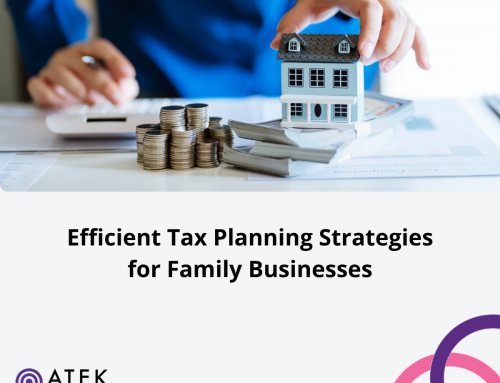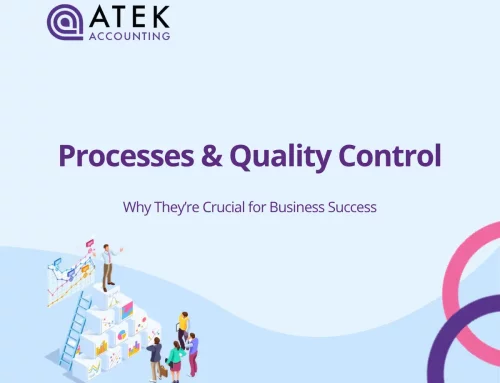
Starting a new business is exciting, and in the first year, there’s a lot to manage. Between building your product, winning clients, and hiring your team, finances can easily fall down the list.
But the financial decisions you make in year one — or the ones you don’t — will shape the long-term performance of your business.
At Atek Accounting, we’ve helped many founders navigate their first year and spotted the key financial moves that make a real difference. Here are the top five we think have the biggest impact:
Key Tips for Your First Financial Year
1. Budgeting for Tax
Early revenue can feel like profit, but it’s important to factor in upcoming tax obligations, both business and personal. Corporation tax, VAT, and self-assessment payments are due throughout the year, and without planning ahead, your first bill can be a painful surprise.
Building tax into both your business and personal cash flow planning from the start and setting up a separate account to regularly set money aside is a simple step that can save a lot of stress later.
2. Leaving Bookkeeping Until the Last Minute
It’s easy to leave bookkeeping until the last minute, but this often leads to poor financial visibility, missed expenses, and rushed year-end reports.
Setting up a simple system early on, or investing in financial software, gives you a clearer view of your numbers in real time.
3. Hiring the Right Accountant
Trying to save money by hiring the cheapest accountant or skipping one altogether often costs more in the long run.
The right accountant does more than just keep you compliant. They can offer valuable tax advice, help you structure your finances properly, and support your growth plans from day one. Investing in the right accounting support early on sets your business up for smarter decisions and fewer surprises down the line.
4. Monitor Your Cash Flow Daily
Profit doesn’t always mean cash in the bank. Clients pay late, costs creep up, and unexpected expenses happen often all at once.
Tracking your cash flow regularly gives you a clear view of what’s coming in and going out, helping you spot issues early and avoid shortfalls that could put your business at risk.
5. Plan How You Pay Yourself
Founders often leave money in the business or pay themselves sporadically, without a clear strategy. But how you pay yourself matters — for both personal financial stability and tax efficiency.
Whether it’s through salary, dividends, or a combination of both, having a plan in place helps you stay consistent, optimise your tax position, and makes it easier to manage your business finances in the long run.
Master Your First Financial Year
Ready to take control of your business finances from day one? At Atek Accounting, we specialise in helping founders build strong financial foundations for long-term success.
Get in touch today to see how we can support your first year and every year after.
More resources:
-
What Does an Accountant Do? And 15 Things You Didn’t Know They Did
-
Commonly Overlooked Tax Deductions for Small Businesses
-
3 Simple Ways to Check Your Business’s Financial Health













